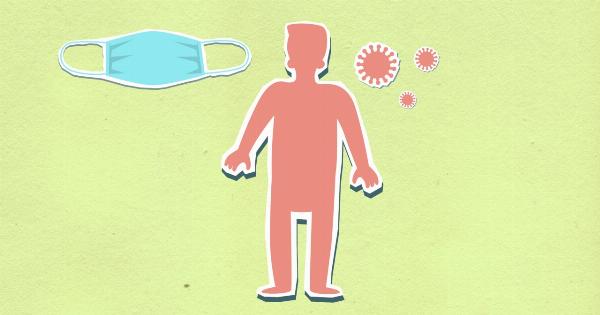For decades, antibiotics have been hailed as miracle drugs, capable of curing everything from tuberculosis to strep throat to pneumonia.
However, recent studies have shown that antibiotics may not be quite the cure-all they were once thought to be, particularly when it comes to respiratory infections. In fact, overuse of antibiotics in the treatment of respiratory infections is not only ineffective, but it may also be leading to the development of antibiotic-resistant bacteria.
Here, we will explore the myth of the miracle antibiotic and its impact on respiratory infections.
What are Respiratory Infections?
Respiratory infections are a common problem, particularly during cold and flu season. Infections of the respiratory system can be caused by bacteria, viruses, or other pathogens, and can affect the upper or lower respiratory tract.
Some examples of common respiratory infections include:.
- Common cold
- Flu (influenza)
- Pneumonia
- Bronchitis
- Sinusitis
- Tuberculosis
The Role of Antibiotics in Respiratory Infections
Antibiotics have long been the go-to treatment for respiratory infections caused by bacteria. However, antibiotics are ineffective against viral infections like the common cold and the flu.
Unfortunately, many physicians continue to prescribe antibiotics for viral respiratory infections, which can contribute to the development of antibiotic-resistant bacteria. Additionally, even when an infection is caused by bacteria, antibiotics are not always the best solution.
The Antibiotic Overuse Epidemic
The overuse of antibiotics has become a major problem in recent years.
Many people believe that antibiotics are the solution to all infections, and physicians are often too quick to write a prescription for antibiotics without first determining the cause of the infection. In fact, according to the Centers for Disease Control and Prevention (CDC), antibiotic overuse is the leading cause of antibiotic resistance, a growing problem that makes it more difficult to treat infections.
A Growing Threat: Antibiotic Resistance
Antibiotic resistance is a major threat to public health, affecting millions of people each year. When bacteria are exposed to antibiotics over a prolonged period of time, they can develop resistance to those antibiotics.
This means that the antibiotics are no longer effective at treating the infection. Antibiotic-resistant bacteria can spread from person to person, and can even spread to animals and from animals to humans.
The Dangers of Antibiotic Resistance in Respiratory Infections
Antibiotic resistance is a particular concern when it comes to respiratory infections. According to the World Health Organization (WHO), antibiotic-resistant bacteria are responsible for an estimated 25,000 deaths each year in the European Union alone.
Respiratory infections are a major contributor to this problem, as antibiotics are often overused in the treatment of these infections. As a result, antibiotic resistance is on the rise in respiratory infections, making it more difficult to treat these infections.
Alternatives to Antibiotics for Respiratory Infections
So, what can be done to reduce the overuse of antibiotics in the treatment of respiratory infections? One approach is to focus on prevention. Vaccines, for example, can protect against many respiratory infections, including the flu and pneumonia.
Good hygiene practices, such as hand washing, can also help prevent the spread of respiratory infections.
In cases where antibiotics are necessary, it’s important for physicians to use them appropriately. This means prescribing antibiotics only when they are truly necessary, and choosing the right antibiotic for the specific infection.
Additionally, physicians should educate their patients about the risks of antibiotic overuse, and encourage them to practice good hygiene and get vaccinated to prevent respiratory infections.
The Bottom Line
The myth of the miracle antibiotic for respiratory infections needs to be dispelled. While antibiotics can be an effective treatment for certain respiratory infections, they are not a cure-all.
Overuse of antibiotics can lead to antibiotic resistance, making it more difficult to treat infections in the future. It’s time for physicians and the general public to take a more responsible approach to the use of antibiotics, focusing on prevention and appropriate use.





























